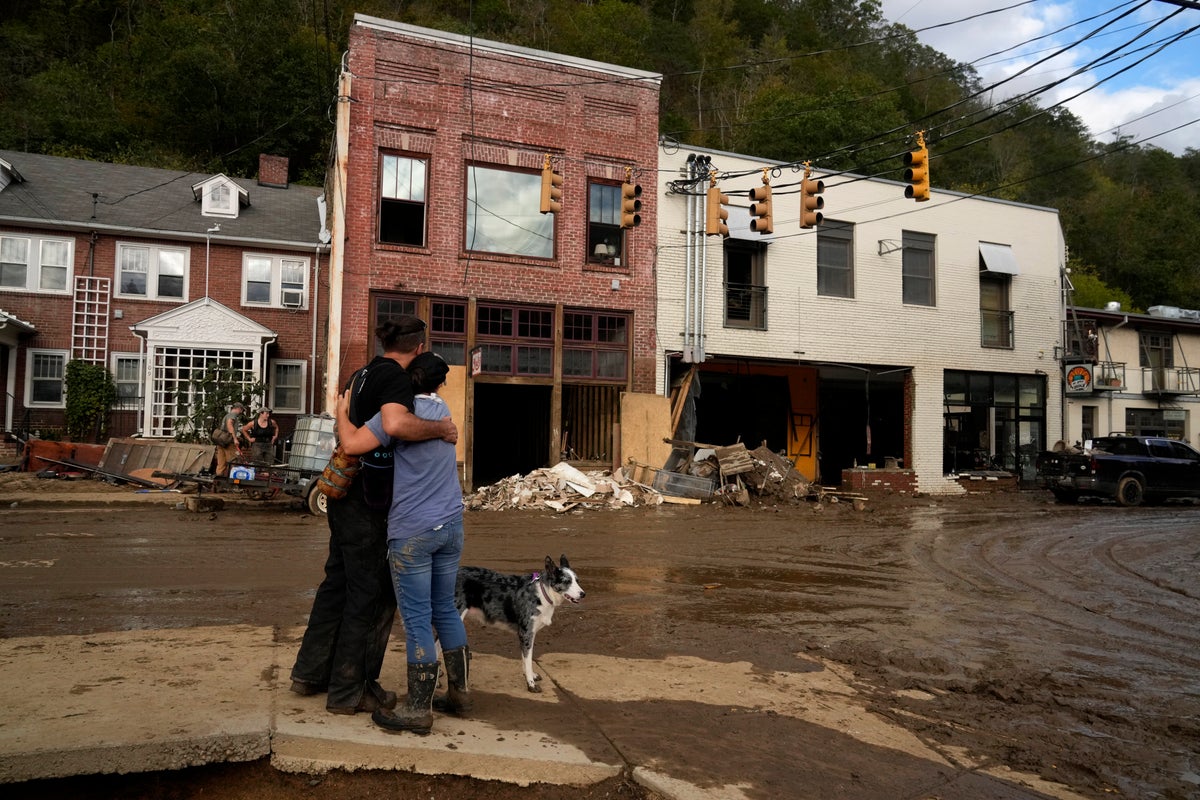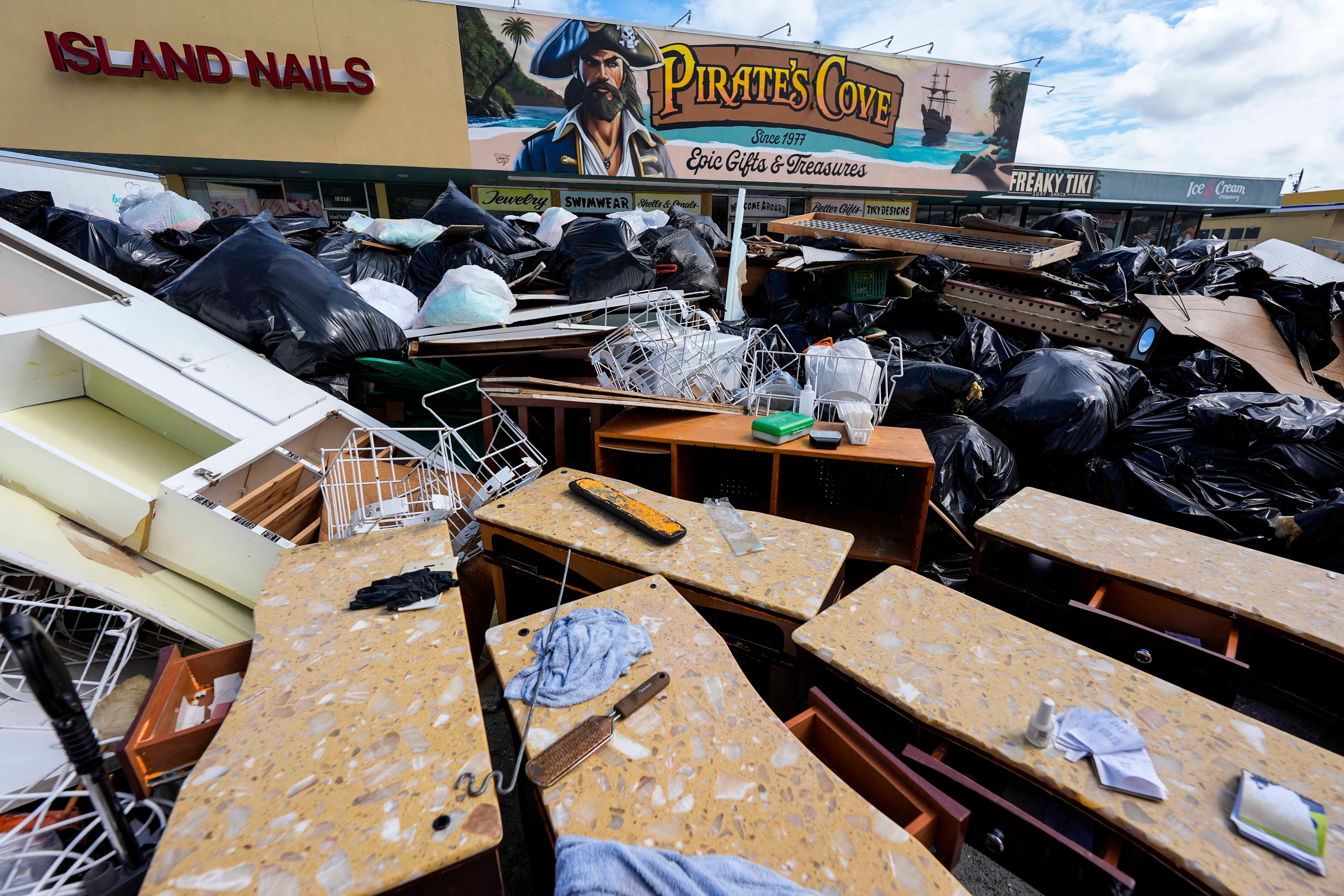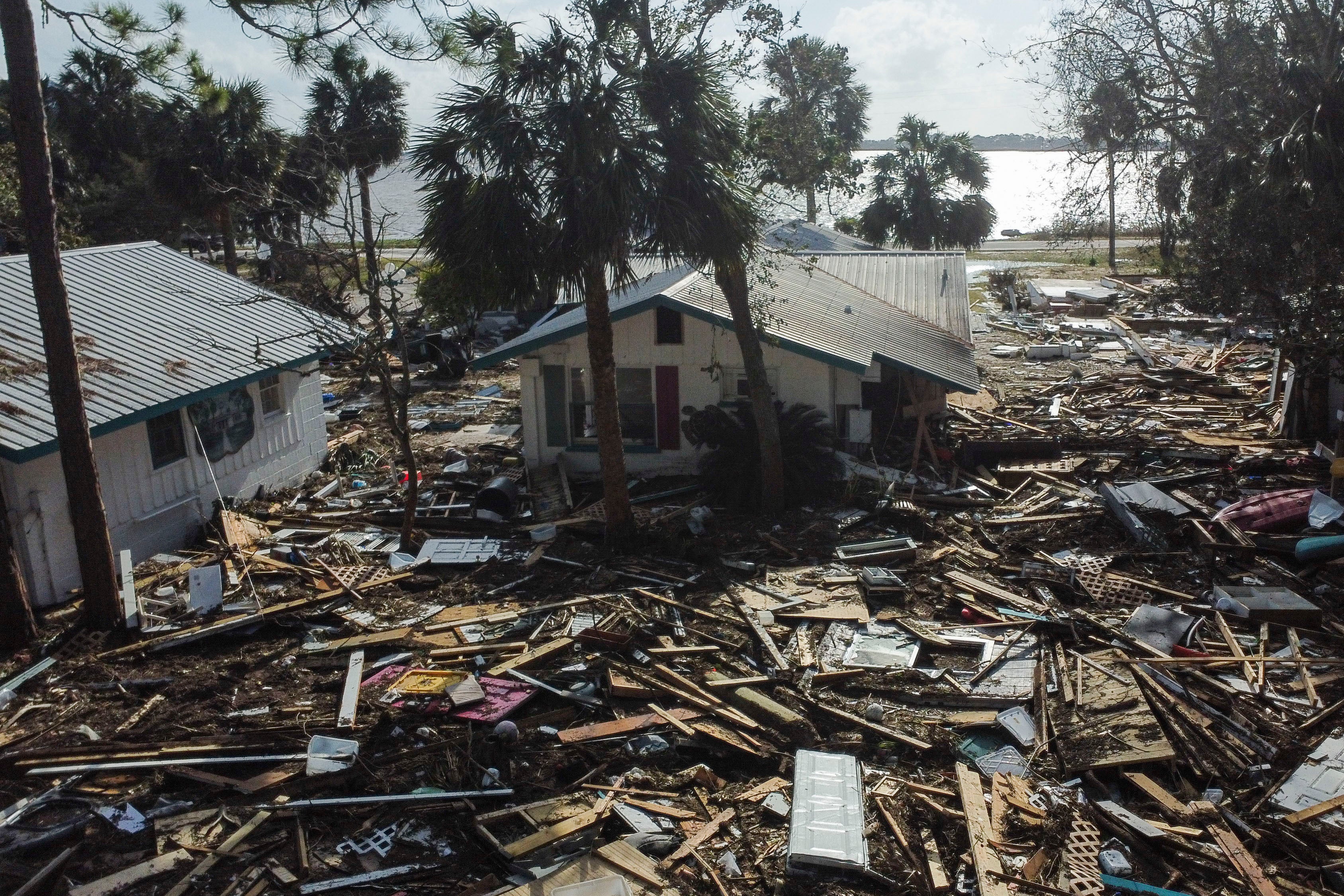
Your support helps us to tell the story
Our mission is to deliver unbiased, fact-based reporting that holds power to account and exposes the truth.
Whether $5 or $50, every contribution counts.
Support us to deliver journalism without an agenda.

Louise Thomas
Editor
Catastrophic hurricanes like Helene are 2.5 times more likely to occur now, a new study has found, just as Florida braces for yet another “historic” storm Milton.
Increased ocean temperatures due to the man-made climate crisis are known to supercharge hurricanes.
But the new study found that hurricanes as intense as Helene, which were once expected to occur every 130 years, are now likely to happen every 53 years – about 2.5 times more frequently.
Scientists also found that Hurricane Helene’s wind speeds were 11 per cent stronger and its rainfall totals were 10 per cent higher than they would have been in a world without the climate crisis.
Ocean temperatures in the Gulf of Mexico were about 3.6 degrees Fahrenheit (2 degrees Celsius) above average, according to the study by the World Weather Attribution (WWA) group.
Such high sea temperatures were made 200 to 500 times more likely by the climate crisis, they said.
“Hurricane Helene and the storms that were happening in the region anyway have all been amplified by the fact that the air is warmer and can hold more moisture, which meant that the rainfall totals – which, even without climate change, would have been incredibly high given the circumstances – were even higher,” Ben Clarke, a study co-author and a climate researcher at Imperial College London, told the Associated Press.

The research comes as Florida is bracing for Hurricane Milton, forecast to be one of the worst hurricanes on record to hit the state, while people are still working to clear up the debris from the devastation caused by Helene.
Milton rapidly intensified from Category 1 to Category 5 on Monday as scientists said the ocean temperatures in the Gulf of Mexico were working as “rocket fuel” for the storm, just as they did for Helene.
Helene, which made landfall in Florida with 140mph winds and a 15-foot storm surge, killed over 230 people pummeling Georgia, the Carolinas, Tennessee and Virginia.
It decimated remote towns throughout the Appalachians, left millions without power, cellular service and supplies. Search crews in the days following continued to look for bodies. Helene was the deadliest hurricane to hit the mainland US since Katrina in 2005.

Many of the fatalities were caused by inland flooding, which the study said has been worsened by climate crisis, as warmer air holds more moisture and leads to heavier downpours.
Helene dumped more than 40 trillion gallons of rain – an unprecedented amount of water – onto the region, meteorologists estimated.
That rainfall would have been much less intense if humans hadn’t warmed the climate, according to WWA, a group of international scientists which frequently assesses the impact of the climate crisis on extreme weather events using peer-reviewed methods.
The scientists warned that continued burning of fossil fuels will lead to more hurricanes like Helene, with “unimaginable” floods well inland, not just on coasts.
“When you start talking about the volumes involved, when you add even just a few per cent on top of that, it makes it even much more destructive,” Dr Clarke said.
The team of scientists tested the influence of the climate crisis on Helene by analysing weather data and climate models including the Imperial College Storm Model, the Climate Shift Index for oceans and the standard WWA approach, which compares an actual event with what might have been expected in a world that hasn't warmed about 1.3 degrees Celsius since pre-industrial times.
A separate analysis of Helene last week by Department of Energy Lawrence Berkeley National Lab scientists determined that the climate crisis caused 50 per cent more rainfall in some parts of Georgia and the Carolinas, and that observed rainfall was “made up to 20 times more likely in these areas because of global warming.”
Americans shouldn’t have to fear hurricanes more violent than Helene - we have all the knowledge and technology needed to lower demand and replace oil, gas and coal with renewable energy.”— Friederike Otto, lead of WWA and senior lecturer in climate science at Imperial College London
Kim Cobb, director of the Institute at Brown for Environment and Society, wasn't involved in either study. She said there are uncertainties in exactly how much the climate crisis is supercharging storms like Helene, but “we know that it’s increasing the power and devastation of these storms.”
She said Helene and Milton should serve “as a wake up call” for emergency preparedness, resilience planning and the increased use of fossil fuels.
“Going forward, additional warming that we know will occur over the next 10 or 20 years will even worsen the statistics of hurricanes," she said, "and we will break new records.”
Analysis is already indicating the climate crisis made possible the warmed sea temperatures that also rapidly intensified Milton.
Dr Clarke said the two massive storms in quick succession show the potential future of the climate crisis if humans don't stop it.
“As we go into the future and our results show this as well, we still have control over what trajectory this goes in as to what risks we face in the future, what costs we pay in the future," he said. "That just hinges on how we change our energy systems and how many more fossil fuels we burn.”







